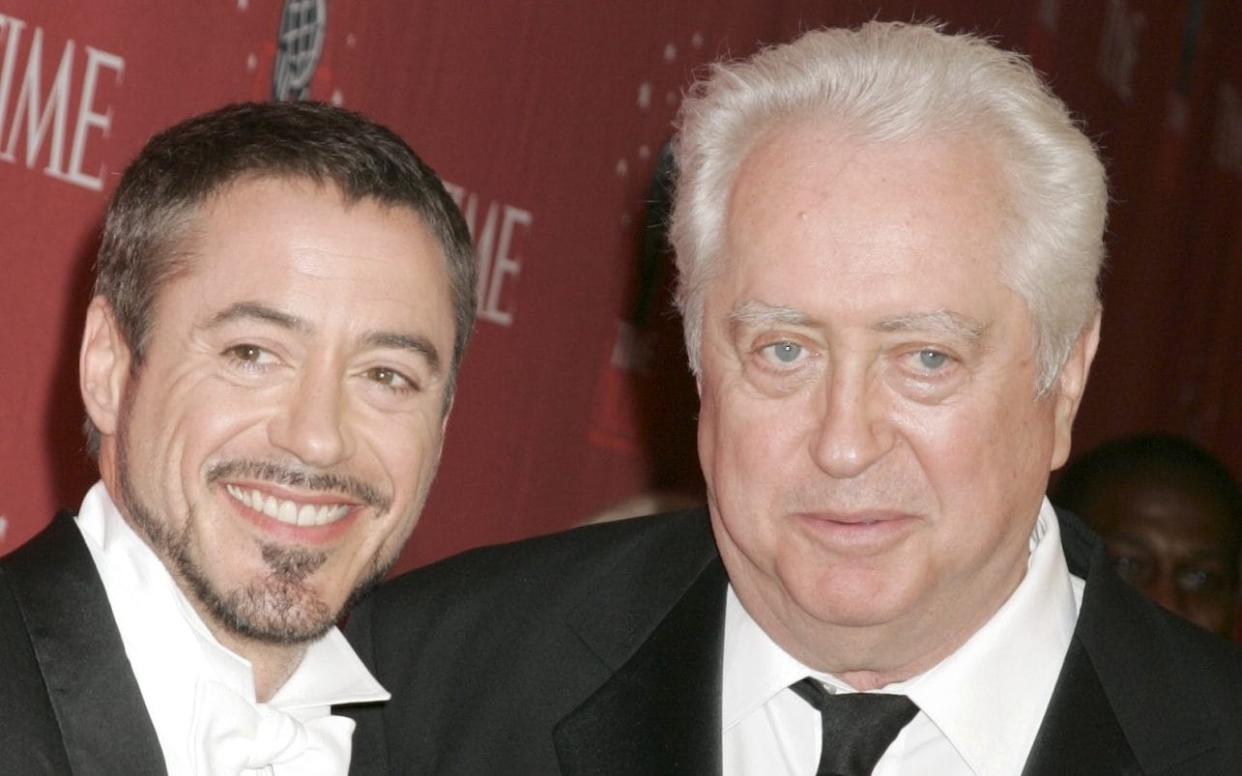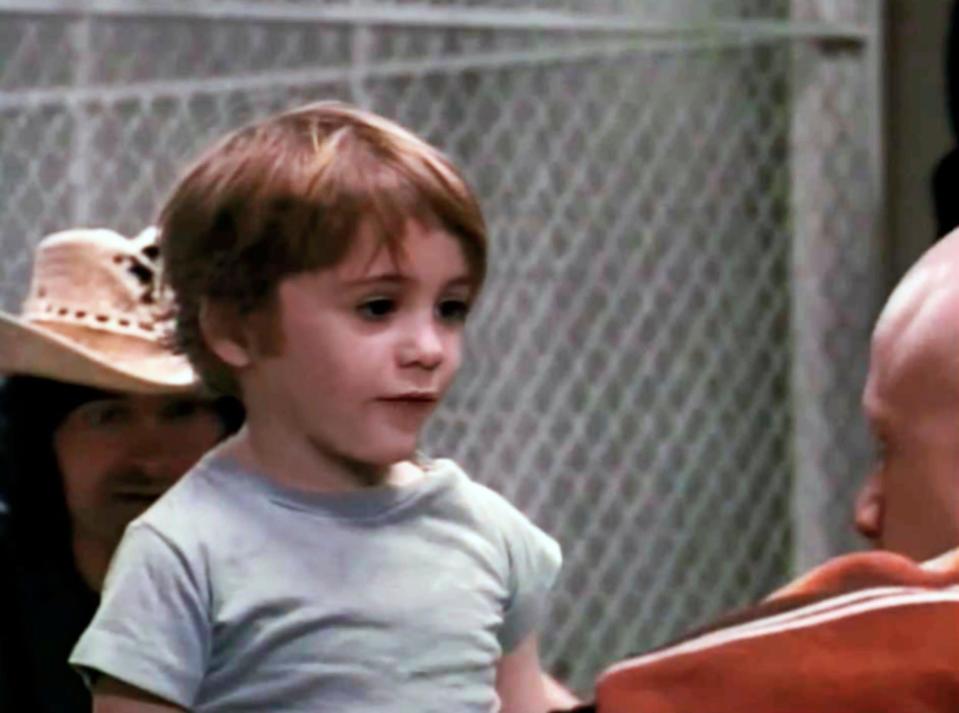Robert Downey Sr, counterculture film-maker who gave his son Robert Jr his first acting role – obituary

Robert Downey Sr, who has died aged 85, was a countercultural, highly unconventional filmmaker and bit-part actor, often in his own movies; he also gave child film roles to his son Robert Downey Jr, later the star of the Iron Man series and winner of a Bafta award for the biopic Chaplin (1992).
Downey Sr, an imaginative, freewheeling and unpredictable maverick, became known for a series of low-budget, underground movies such as the satirical Putney Swope (1969), in which Arnold Johnson plays a black man who is accidentally elected chairman of a Madison Avenue advertising agency. He renames it Truth and Soul, removes all but one of its white employees and declines to accept business from companies dealing in alcohol, tobacco or guns.
The critic John Russell Taylor dismissed Putney Swope as “elephantine and amateurish”, adding that “the only exemplification of ‘truth and soul’ in advertising that Mr Downey can come up with is commercials with even more sex than before, plus four-letter words”.
The film achieved cult status in the US, however, and in 2016 was selected by the Library of Congress for the National Film Registry as being “culturally, historically or aesthetically significant”.

Downey went on to influence a younger generation of film-makers, including Paul Thomas Anderson, director of Magnolia, who said: “I just idolise him.” When several of Downey’s films were restored, Martin Scorsese described them as “an essential part of that moment when a truly independent American cinema was born.”
Many of the films were family affairs, with Downey’s first wife Elsie appearing in four of them and co-writing another, the surreal comedy Moment to Moment (1975). Meanwhile, their children, Allyson and Robert Jr, made their film debuts at the ages of seven and five respectively, appearing in Pound (1970), an absurdist tale of 18 dogs waiting to be adopted from a pound or gassed.
Robert Jr, who went through well-publicised addiction problems, has spoken about his parents’ Bohemian social set and how he was introduced to marijuana by his father – something Downey Sr, in an interview in 2004, described with regret as an “idiot move”.
Greaser’s Palace (1972) was a western based on the life of Christ in which Jesse (Allan Arbus) heals the sick, raises the dead and tap-dances on water. The Downey family were again involved, Robert Jr taking an uncredited role as a hunchback child; but the backlash from religious groups was intense and Downey recalled one member of the audience being so offended that they ran out of the cinema in fury, only to be hit by a cab.
Downey’s vivid imagination may well have been stimulated by his consumption of the fashionable drugs of the era, possibly explaining why some of his credits included the line “Directed by Robert Downey (a prince)”. He recalled the wording being adopted one day in the editing room: “Somebody said, ‘You’re a prince, Bob’. I said, ‘F--- you, I’m putting that in the movie.’ ”
He was born Robert John Elias in Manhattan on June 24 1936, the son of Robert Elias, who was of Lithuanian-Jewish descent and ran a series of motels and restaurants, and his wife Elizabeth (née McLauchlen), a half-Irish, half-Hungarian-Jewish magazine model. After his parents divorced his mother married James Downey and Robert changed his name. He dropped out of high school, hoping to join the US Army, but, being underage, was rejected.
Taking up boxing, he won a Golden Gloves championship. “I went in without training and I was tall for my weight,” he reminisced. “I had a good jab and could keep someone away from me.” Heading home afterwards on the subway he spotted the similarly unprepared opponent he had just felled. “He was looking at me and I was looking at him, and I thought he was going to kill me … We kind of waved to each other as I got off.” In his next bout he fought someone better prepared, which was the end of the gloves.

Finally accepted by the army, he saw service in Korea but spent time in the stockade for being drunk. An officer gave him a notebook and suggested he write something to amuse himself. “I started scribbling, and it felt right,” he said. Discharged after three years for bad conduct, he spent a summer as a pitcher for a semi-professional baseball team in Pennsylvania.
He wrote his earliest plays while waiting tables in Greenwich Village, the centre of the 1960s counterculture movement. These included What Else is There?, about a group of nuclear missiles that are brought to life by actors. “It was a kind of comedy, but also a romantic story,” he recalled in Village Voice, adding that the missiles were not expected to move too much in case they detonated.
His first film budgets were as low as $3,000, with some of them being written and filmed within a week. He directed and acted in Balls Bluff (1961), playing a Confederate soldier who wanders on to the middle of the field at Yankee Stadium during a baseball game.
Babo 73 (1964) was a comedy about the tribulations of a newly elected US president. “We just basically went down to the White House and started shooting, with no press passes, permits, anything like that,” he told the authors of Film Voices: Interviews From Post Script (2004).

Sweet Smell of Sex (1965) was an X-rated film about a naive young woman from Indiana fending off advances from every seedy man she meets in sordid New York. Downey claimed to have only accepted the assignment to pay the medical bills for Robert Jr’s birth.
Chafed Elbows (1966), a “manic comic parody” in which his wife Elsie played all 13 female roles, was his first substantial underground hit. It was made largely with still images and a few live-action scenes, with most of the dialogue being dubbed later, often with unintended hilarity. “It was just fun,” he said.
Yet even financing low-budget films was difficult. “My wife would get a cheque from doing a commercial, and I’d grab it before she even saw it.” It was not until Putney Swope, with its budget of $25,000 and the promise of national distribution, that he began to achieve widespread recognition.

By the mid-1980s Downey was clean of drugs and making episodes of Twilight Zone, including one called “Tooth and Consequences”, about a paranoid Jewish dentist who has a visit from the tooth fairy. He secured the services of both his son and Sean Penn for Hugo Pool (1997), the tale of a Los Angeles swimming pool cleaner who falls for a young man dying of Lou Gehrig’s disease, the illness that had killed Downey Sr’s second wife.
The final film he directed was Rittenhouse Square (2005), an impressionistic tribute to the public space in Philadelphia. He continued to act occasionally, appearing in Tower Heist (2011) with Eddie Murphy, Ben Stiller and Casey Affleck.
In later years Robert Downey Sr lived largely in the shadow of his son’s trials and later triumphs, once joking that he kept track of Downey Jr’s whereabouts by reading the mass-market National Enquirer. His marriage to Elsie Ford was dissolved in 1975; his second was in 1991 to the actress and writer Laura Ernst, who died in 1994. In 1998 he married the author Rosemary Rogers, who survives him with Allyson and Robert, the children of his first marriage.
Robert Downey Sr, born June 24 1936, died July 7 2021

 Yahoo News
Yahoo News 
